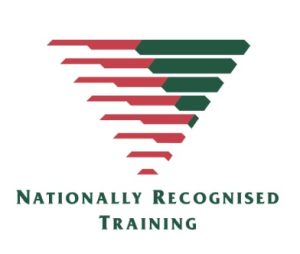Over the years Bramwell Partners has often been asked about the difference between Accredited and non-accredited training. This issue can become even more clouded due to an increasing number of businesses offering courses that appear to be ‘’accredited” but on closer inspection they are not. Let’s have a look at the differences between the two types of training.
Accredited Training
Accredited training also referred to as Nationally Accredited Training or Nationally Recognized Training or Vocational Training is a Federally regulated training system that is administered by the Australian Skills Quality Authority. The aim of this system is to ensure that training conducted across the country is consistent and that students that complete the same qualification in different states complete the same units and receive the same informational content during their studies. This is assisted by the Australian Qualifications framework, this framework provides the various qualification levels and their requirements for the expected outcomes of knowledge and skills for that level ( An overview of the AQF qualifications can be found here AQF Qualifications and an overview of the levels and criteria can be found here AQF levels
Organisations that deliver training under this system are referred to as Registered Training organizations, these companies are regularly audited to ensure that the required standards for training and compliance are being met in relation to content, evidence gathered on how students have been assessed and trainer experience and qualifications.
The courses that are offered under the nationally recognised training system are regulated by training packages that are designed and administered by Jobs and Skills Councils.g These training packages provide the packaging rules for qualifications and individual Units of competency that can be used to make up a qualification. These current training packages and individual units of competency can be found here.
Training under this framework can only be delivered by suitably qualified trainers that have:
- A current Training and Assessment qualification
- TAE40122 Certificate IV in Training and Assessment or its successor or
- TAE40116 Certificate IV in Training and Assessment or its successor or
- TAE40110 Certificate IV in Training and Assessment, and one of the following:
- TAELLN411 (or its successor) or TAELLN401A, and
- TAEASS502 (or its successor) or TAEASS502A or TAEASS502B or
- A diploma or higher-level qualification in adult education.
- vocational competencies at least to the level being delivered and assessed.
- current industry skills directly relevant to the training and assessment being provided; and
- current knowledge and skills in vocational training and learning that informs their training and assessment.
And are employed by a Registered Training Organisation that has the relevant units and qualifications on their scope of registration.
When a student completes their nationally recognised training, they will receive either a Statement of Attainment or a Certificate or Diploma listing the name of the qualification (eg, BSB41419 – Certificate IV in Workplace Health and Safety) the transcript of the units of competency that were undertaken during the course of the study. Both the certificate and statements of attainment will also display the Nationally Recognised training logo 
Non-Accredited Training
Non-Accredited training or Corporate Training as it is also known has a lot more flexibility to its structure, there are no set requirements for course content, duration, trainer requirements. This sort of training is more common with soft skills training for example communication, conflict resolution, writing skills etc. Any subject can be delivered as a non-accredited course, these days a business has a choice of accredited or non-accredited training for certain topics such as Fire warden, Fire extinguisher or evacuation training.
The benefits of this style of course are:
- The content can be tailored to the individual needs of the company.
- There are no formal requirements for someone to have a qualification in training or assessment
- Flexibility in how the course is delivered (eLearning, face to face)
- Flexibility in duration
Once a participant has completed a non-accredited course they can be issued with a statement of attendance for the topic of the course.
Seeking Guidance On The Training Requirements For Your Workforce?
Our experienced HR support professionals and quality management consultants are here to provide you with the tools, insights, and strategies to meet your legal compliance and achieve outstanding team results. Discover how our dedicated consultants can help you create a reputable and high-performance team by calling us for a free consultation on 07 3630 5695.
 enquiries@bramwellpartners.com.au
enquiries@bramwellpartners.com.au


